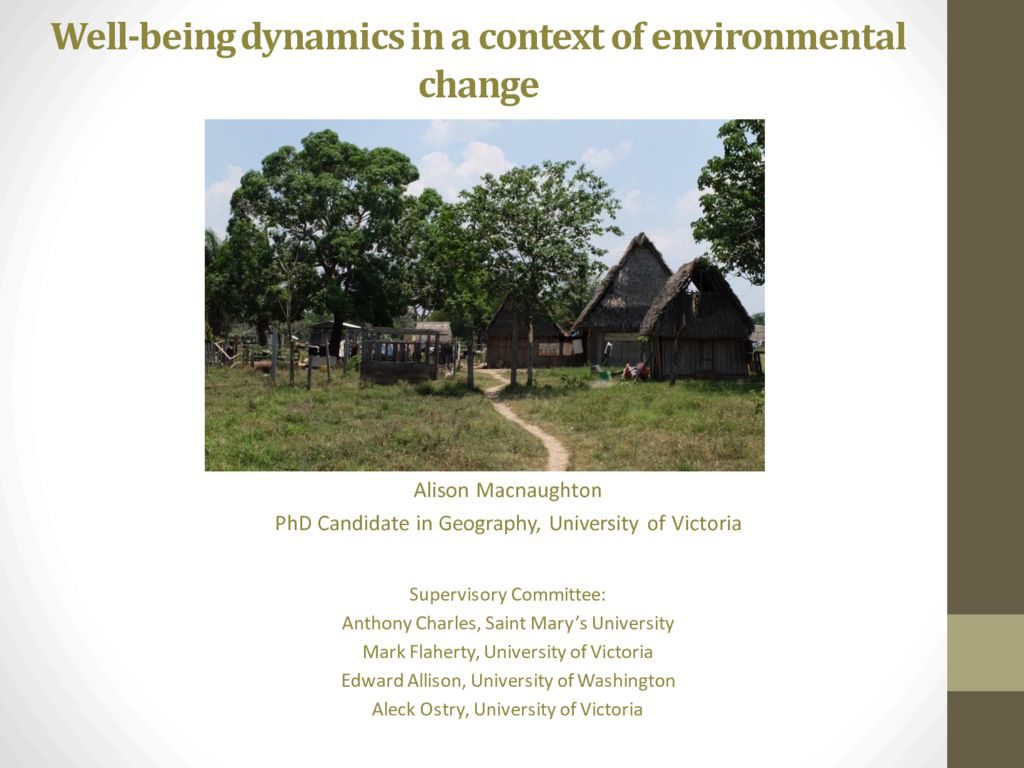26 Mar Fair Markets and Local Economies – Sustainable Economies and Local Community
This section focuses on the linkages of sustainable economies and local communities, in particular examining how communities can engage in economic-oriented decision-making to work toward positive outcomes that address external pressures on their livelihoods from climate change, economic development, and the degradation of the resources on which they depend for their livelihoods. A key element of this lies in recognizing the interconnections of economic development with environmental and cultural values held by stakeholders in a specific region. To this end, integrated planning approaches can be important. A related element is the importance of understanding the determinants of wellbeing (at household, community and regional levels) in local communities. This is explored through several case studies of local communities, using social well-being and livelihoods approaches to examine priorities, choices and perceived trends in relation to local conservation initiatives such as natural resource management, and the roles of agency, access and equity associated with wellbeing and wellbeing change.
Looking at these topics broadly, it seems that green economy concepts relating to equity, social capital and social cohesion may be important to help to build more resilient socio-economic structures for local communities facing external economic, environmental and social pressures to their livelihoods.
Key Themes:
Governance, Rights & Conflict, Livelihoods, Indigenous Issues
Presented Material:
Nicholas Conner (Lead, CEESP Local Economies, Communities and Nature Specialist Group)
Alison Macnaughton (University of V), Anthony Charles (Saint Mary’s University and Community Conservation Research Network)




